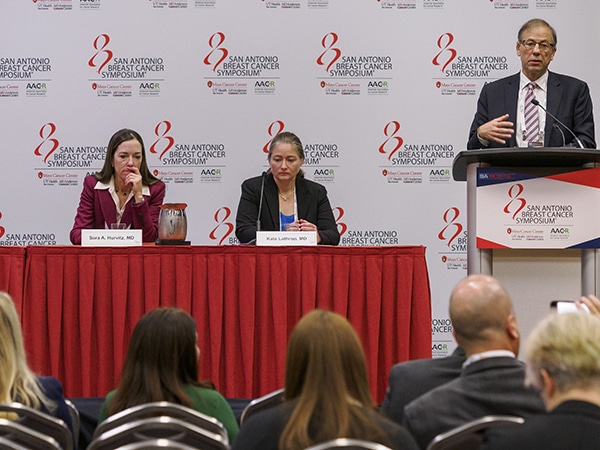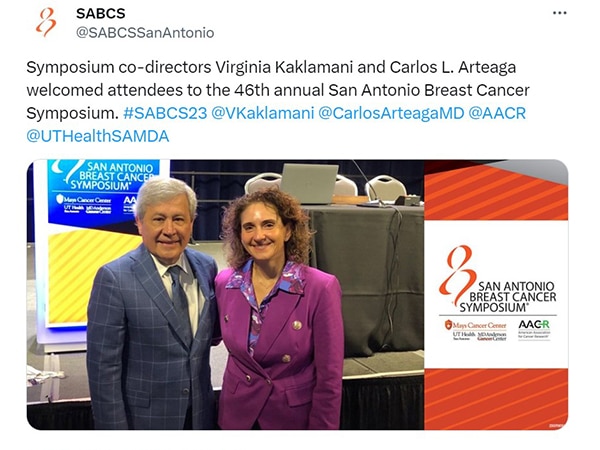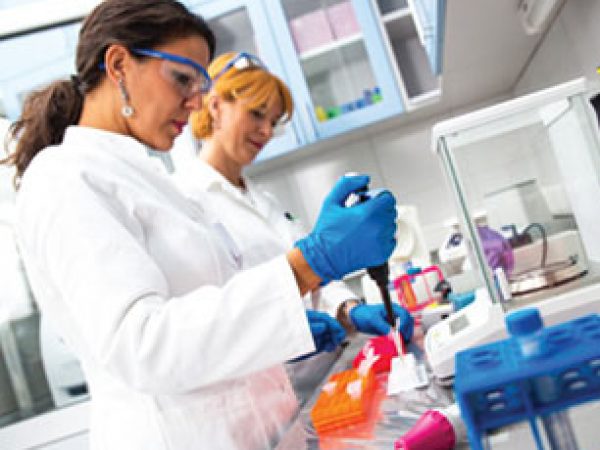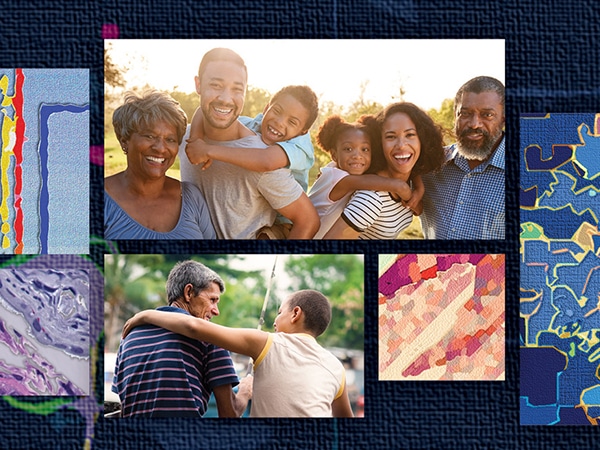Wrapping Up SABCS 2023
The 2023 San Antonio Breast Cancer Symposium (SABCS), held December 5-9, featured a program filled with cutting-edge research, thoughtful discussions among experts, and plenty of networking opportunities for researchers and patient advocates alike.
A record-breaking 10,874 in-person and virtual registrants from 102 countries—including 617 patient advocates and 269 members of the media—converged to witness the research from 1,886 accepted abstracts, plus invited speakers presenting plenary addresses, award lectures, educational sessions, and more.

The American Association for Cancer Research (AACR), an SABCS co-sponsor, organized a robust press program to present some of the exciting studies to the media through three press conferences. These included:
- Tucatinib Plus Trastuzumab Emtansine May Benefit Patients With Advanced or Metastatic HER2-positive Breast Cancer
- Neoadjuvant Chemotherapy May Help Some Breast Cancer Patients Skip Regional Nodal Irradiation
- Younger Postmenopausal Patients With Early-stage Breast Cancer May Be Able to Safely Omit Adjuvant Radiotherapy
- Exercise May Boost Quality of Life for Patients With Metastatic Breast Cancer
- Patients with HR-positive Breast Cancer May Use Fertility Preservation and Assisted Reproductive Technologies Without Increased Risk of Recurrence
- Potentially Targetable Fusion RNAs May Be More Common in Metastatic Breast Cancer Than Previously Realized
- Skipping Adjuvant Radiotherapy May Not Impact Risk of Recurrence or Progression in Patients with Low-risk DCIS
- Some Breast Cancer Survivors May Safely De-escalate Mammography Three Years After Surgery
The press conferences held onsite in San Antonio also featured two late-breaking clinical trials:
- An updated analysis of the phase III KATHERINE trial evaluated trastuzumab emtansine (Kadcyla; T-DM1) versus trastuzumab (Herceptin) for patients with residual HER2-positive breast cancer after neoadjuvant therapy.
- A primary analysis of the INAVO120 trial evaluated a triplet therapy consisting of palbociclib (Ibrance), fulvestrant (Faslodex), and the investigational PI3K inhibitor inavolisib in patients with PIK3CA-mutated, hormone receptor-positive, HER2-negative breast cancer.

The studies featured in the press program drew the attention of media outlets such as The Associated Press, HealthDay, and MedPage Today. Prior to the meeting, SABCS co-director Virginia Kaklamani, MD, a professor of medicine in the Department of Hematology/Oncology at UT Health San Antonio and the leader of the Breast Cancer Program at the UT Health San Antonio MD Anderson Cancer Center, was interviewed by Medscape, OBR Oncology, and the American Journal of Managed Care about the meeting.
Cancer Nursing Today also interviewed the recipients of the AACR Distinguished Lectureship in Breast Cancer Research and the AACR Outstanding Investigator Award for Breast Cancer Research about their work.
Cancer Today, an AACR magazine for patients and caregivers, published five articles about the meeting, including one from the press program about the benefits of exercise for patients with metastatic breast cancer. The Cancer Today staff also explored the topic of new treatment regimens for patients with brain metastases from HER2-positive disease. They covered a panel discussion on addressing social determinants of health that may impact breast cancer care, and they discussed the importance of involving patient advocates in research, especially when discussing the side effects they experience during treatment.
The AACR blog also reported on several topics featured at SABCS. Our blog coverage included:
- The Five ‘W’s’ (and ‘H’) of SABCS 2023
- POSITIVE Results for Breast Cancer Patients Wanting to Conceive
- Some Patients May Safely Skip Radiation
- Defining and Demystifying Inflammatory Breast Cancer
- How Do Triple-negative Breast Cancers Evolve?
- As Conference Ends, Experts Look to the Future
SABCS attendees were incredibly active on social media, with over 14,600 tweets shared by over 2,400 people using the #SABCS23 hashtag. Overall, the meeting generated a record-breaking 106.7 million impressions on X (formerly known as Twitter) alone.

If you couldn’t make it to the conference, or if you missed anything while running between sessions and catching up with colleagues, SABCS Meeting News summarized much of the impactful research, including coverage of popular workshops and forums, as well as thoughts from prominent experts.
Registered attendees can continue to view all conference materials on demand through March 2024 on the virtual meeting platform. Thanks to all attendees for their enthusiastic participation in this year’s meeting!



